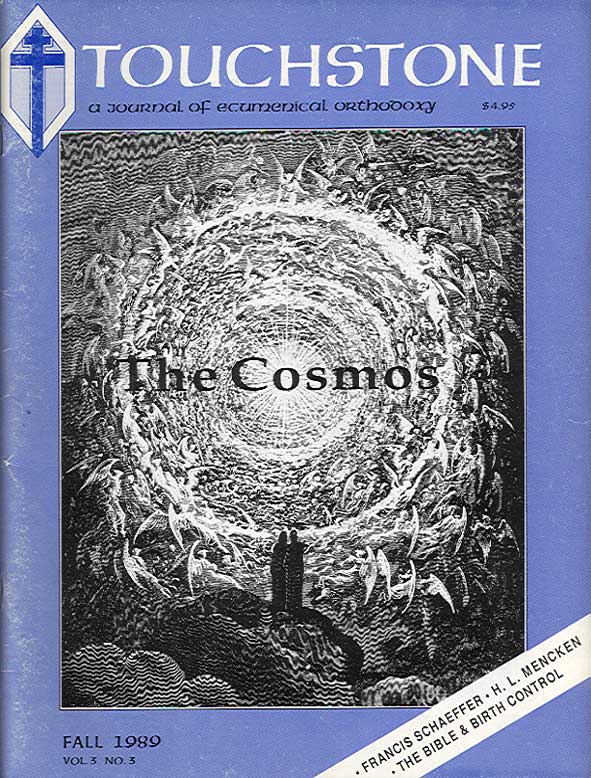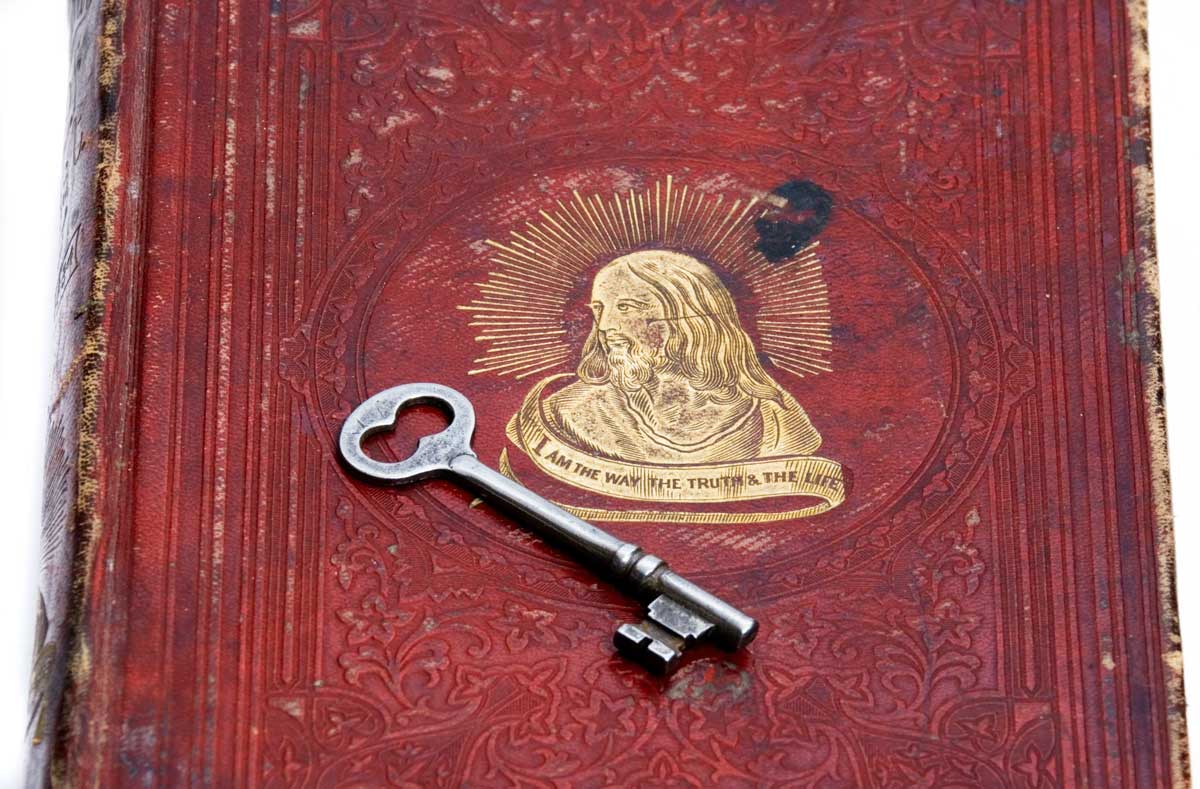“Fears May Be Liars”
by Steven Faulkner
I was sitting at table recently at a meeting of the Hilaire Belloc Society, a wonderfully anachronistic assemblage of professors, students, and former students who meet irregularly to dine, wine, and comment on subjects Bellocian. It was Lent, and the dinner had been fittingly mediocre. Due to the religious convictions of most present, the usual cigar smoke was somewhat abated. We sat about sipping our now cold coffee, listening to a young man reading a paper. The paper ended. We glanced about hoping for something, some morsel of wisdom to carry with us into the winter night.
Before long a disputation arose at our table: something about quantum mechanics and the death of scientism. A venerable professor, forty years a teacher of Shakespeare, was lauding the demise of absolute materialism among notable physicists of our day. But at this another equally venerable professor shook his head, “But this is worse than what we had before! At least one could reason with the old scientists!”
There ensued a contest of thrust and parry. The first speaker sought a connection between the doubts of modern scientists and the faith of Christians; the other doubted the value of any such connection. The one sought some common ground with modern minds; the other saw little use in the shifting perspectives of secularists (even when they wandered near Christian theology). Later, I heard the second professor predict that a wave of conservatism would soon sweep the Church; but his pessimism was invincible. “It will do us no good. The rug will be ripped from under us and we will sink even lower.” He refused all signs of hope.
The elderly Shakespearean, sensing the force of this pessimism, repsonded in a rasping, fervent voice:
“Say not the struggle nought availeth,
The labour and the wounds are vain,
The enemy faints not, nor faileth,
And as things have been, things remain.If hopes were dupes, fears may be liars;
It may be, in yon smoke concealed,
Your comrades chase e’en now the fliers,
And, but for you, possess the field.For while the tired waves, vainly breaking,
Seem here no painful inch to gain,
Far back through creeks and inlets making,
Came, silent, flooding in, the main.And not by Eastern windows only,
When daylight comes, comes in the light,
In front the sun climbs slow, how slowly,
But westward, look, the land is bright!”*
Then, with slow and deliberate cadence, he repeated: “‘Far back through creeks and inlets making / Came, silent, flooding in, the main’! The mountain before us casts us in shadow, but look behind; the sun already rises.”
And I thought, yes, he has something there. Though I had found myself agreeing with many of the details of the pessimist, I was lifted by this man’s ardent hope. There may seem overwhelming reason to despair for orthodoxy. Everywhere the winds seem to carry the death-lament for Christian faith and culture. But, “If hopes were dupes, fears may be liars.” And on this night, and aged prof raise his voice to fire our Christian hopes.
Later in his office, I asked him when he first memorized that poem. “It was 1940,” he said, “during the Battle of Britain. Things looked very bad, you know. But across the air waves one night, I heard the voice of Winston Churchill, reciting this very poem.” Almost fifty years later, the professor was still reciting it and recalling the hope it raised.
For my part, I wish that Christians everywhere would rise to their hope. This is no call for blind optimism. But we must never give over the battle in despair. In every darkened age there is that temptation. After the barbarians sacked Rome, St. Augustine answered with his City of God, and medieval Christianity rose from the ashes. During seventy years of subjugation, Christians behind the Iron Curtain have kept the fires burning. “Though we seem here no painful inch to gain,” perhaps far back in “creeks and inlets making,” God is raising a springtime flood. We, of all people, have the right and responsibility to anticipate the inevitable spring and even now breathe an alleluia.
* Poem by Arthur Hugh Clough
Steven Faulkner is rector of Holy Trinity Church in Topeka, Kansas.
Steven Faulkner teaches creative writing at Longwood University in southern Virginia. He is the author of Waterwalk: A Passage of Ghosts (2007) and Bitterroot: Echoes of Beauty and Loss (2016). Both books are memoirs of father-son journeys that followed the paths of missionary priests: Marquette (in Waterwalk) and De Smet (in Bitterroot).
subscription options
Order
Print/Online Subscription

Get six issues (one year) of Touchstone PLUS full online access including pdf downloads for only $39.95. That's only $3.34 per month!
Order
Online Only
Subscription

Get a one-year full-access subscription to the Touchstone online archives for only $19.95. That's only $1.66 per month!
bulk subscriptions
Order Touchstone subscriptions in bulk and save $10 per sub! Each subscription includes 6 issues of Touchstone plus full online access to touchstonemag.com—including archives, videos, and pdf downloads of recent issues for only $29.95 each! Great for churches or study groups.
Transactions will be processed on a secure server.
more from the online archives
calling all readers
Please Donate
"There are magazines worth reading but few worth saving . . . Touchstone is just such a magazine."
—Alice von Hildebrand
"Here we do not concede one square millimeter of territory to falsehood, folly, contemporary sentimentality, or fashion. We speak the truth, and let God be our judge. . . . Touchstone is the one committedly Christian conservative journal."
—Anthony Esolen, Touchstone senior editor









